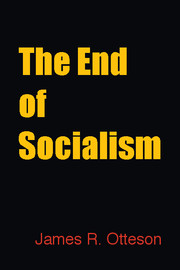Book contents
- Frontmatter
- Dedication
- Contents
- Preface
- Acknowledgments
- 1 What Socialism and Capitalism Are
- Part I Socialism’s Problems in Practice
- 2 Knowledge and Planning
- 3 Knowledge: Value, Equality, and Experts
- 4 Knowledge and Community
- 5 The Day Two Problem
- Part II Socialism’s Problems in Principle
- Conclusion
- Bibliography
- Index
2 - Knowledge and Planning
Published online by Cambridge University Press: 05 October 2014
- Frontmatter
- Dedication
- Contents
- Preface
- Acknowledgments
- 1 What Socialism and Capitalism Are
- Part I Socialism’s Problems in Practice
- 2 Knowledge and Planning
- 3 Knowledge: Value, Equality, and Experts
- 4 Knowledge and Community
- 5 The Day Two Problem
- Part II Socialism’s Problems in Principle
- Conclusion
- Bibliography
- Index
Summary
Introduction
In the first half of the twentieth century, a series of economists led by Ludwig von Mises and Friedrich Hayek discovered and demonstrated a problem facing socialist economic planning that became known as the “knowledge problem.” A socialist economy by hypothesis allows little or no private decision making about how to use capital, and it restricts, perhaps all the way to zero, the operations of economic markets. It may do this either by owning the means of production outright or, as is more common today, by a policy of dirigisme that centrally controls the use and activity of nominally private property. Whatever good—moral or otherwise—that the socialist economy is designed to achieve, its lack of decentralized decisions about how to use property in markets leads to the absence of proper prices—and this fact has surprisingly far-reaching consequences.
Prices Real and Artificial
Prices arise when people make localized bids for exchange: person A says to person B, “I will give you my x for your y.” Person C says to B, “I will give you x + w for your y.” Person A will not top that offer so B and C strike a deal and a price precedent of x + w for y is established. There is nothing intrinsic, inherent, or transcendent about a price; it is merely what someone in a particular circumstance is willing to sacrifice for something. A person weighs the proffered good or service against his schedule of value and the other opportunities available to him and thence makes a decision. One person’s decision is not necessarily determinative of—or even relevant to—anyone else’s because each person has his own schedule of value, opportunity costs, and so on. Yet when this process is repeated hundreds or thousands of times, patterns emerge from the decisions people make and these patterns come to reflect facts and information—i.e., knowledge—that they have but that others do not.
- Type
- Chapter
- Information
- The End of Socialism , pp. 23 - 43Publisher: Cambridge University PressPrint publication year: 2014



